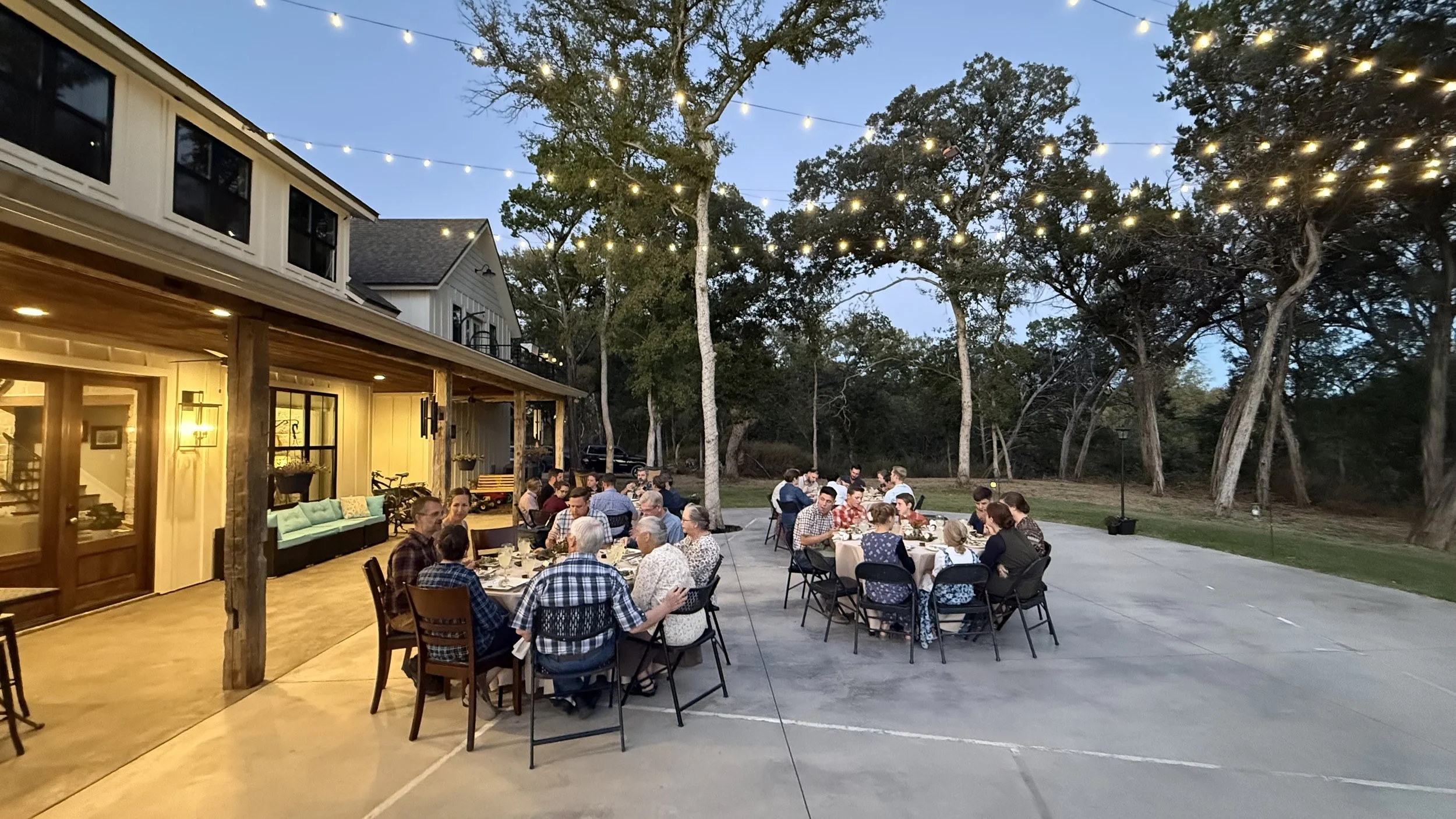Covetousness—The Thief of Contentment
Outside dinner with family and friends
“I have learned in whatever situation I am to be content. . . . In any and every circumstance, I have learned the secret of facing plenty and hunger, abundance and need.”
—Philippians 4:11–12
Dearest Daughters,
There is a lurking danger that sometimes tiptoes into a woman’s heart, so subtle we may not notice it at first. Suspicion and coveting were the first sins to enter the world. After conversing with the serpent, Eve allowed suspicion toward God to take root, and then she began to covet what did not belong to her. Suspicion always brings us into conversation with the accuser, and covetousness leads us away from trust in God and into idolatry, for “covetousness . . . is idolatry” (Eph. 5:5).
The tenth commandment tells us we must not covet anything belonging to our neighbor. Wherever coveting begins, Christ’s lordship in the heart begins to fade, and something else takes His place. Many don’t seem to recognize that for a woman to covet the place God has given to a man (or vice versa) is sin. But this coveting of another’s place puts us in the same posture as Eve—choosing for ourselves rather than trusting God, and therefore stepping away from His covering and His peace.
This same coveting can seep into other relationships as well, particularly between women. The thoughts sound harmless at first:
She only gets to sing a solo because she knows the right people.
She gets to function in that capacity because of family connections.
They were invited because of their wealth.
Everyone thinks she’s so intelligent—but if they knew . . .
These whisperings of the accuser tear down love, strain relationships, and weaken the witness of Christ’s body. But Scripture reminds us, “in Christ we, though many, form one body, and each member belongs to all the others” (Rom. 12:5, NIV). We belong to each other, and we honor Christ by honoring His design and His placement.
In an orchestra, it would be foolish for the first-chair violinist to covet the drummer’s place, saying, “I could keep the rhythm better!” Or for the drummer to demand the delicate melodies of the violin. We would say, “Your part is beautiful. It was given to you for a reason.” Each instrument has its own role, and the harmony depends on differences working together, not competing.
And yet in family life, in church life, and in friendship, we sometimes lose sight of the larger “orchestra.” A narrow, individualistic view focuses on what we lack, while overlooking the privilege of being called into something larger than ourselves. To take our place is not confinement—it is belonging. It is stewardship. And it is peace.
Paul said, “I have learned in whatever situation I am to be content” (Phil. 4:11). Contentment is not passive—it is a practiced trust. It sees that God, in His wisdom, has assigned each of us a part to play, and that His purposes for us are good.
Let us always guard our hearts from suspicion, refuse the quiet invitations to compare, and take joy in the place God has given each of His children. Rejoice also in the gifts and callings of others, knowing we are members of one body, each needed, each cherished, each placed by God’s own hand.
With all my love,
Mom
